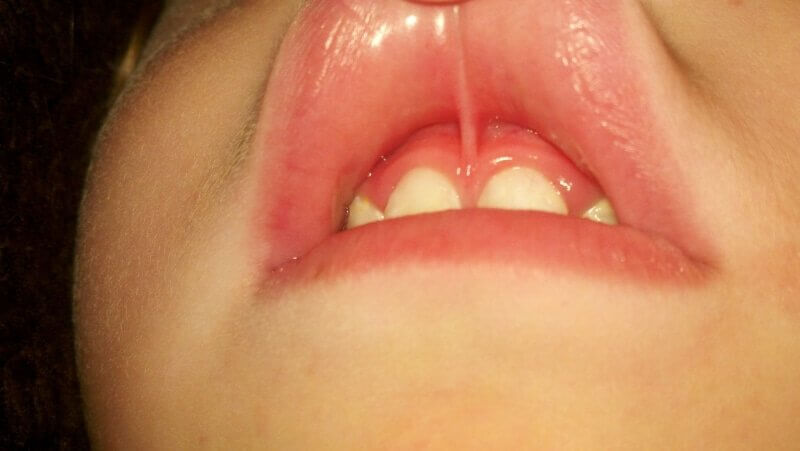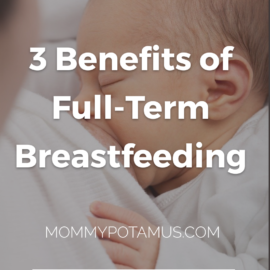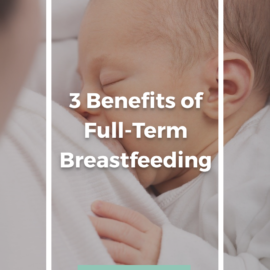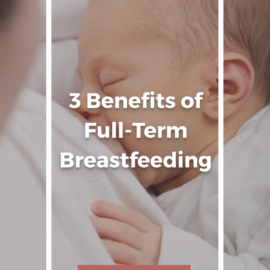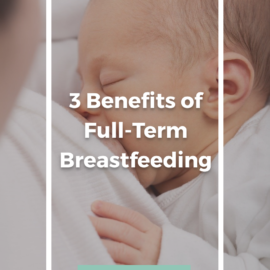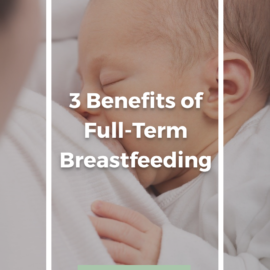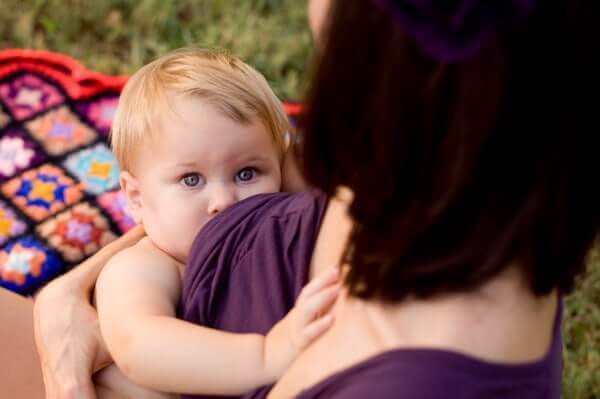
So, I have this friend who had to take her 15 month-old hunk of chubby goodness – also known as Myles – in for blood tests. Explaining needles was not all that effective so there was, um, struggling. And crying. And a frantic search for the breast – which of course my friend lovingly offered.
“Mama, I’m too old for that.”
Now I know what you’re thinking, smart kid to be talking in complete sentences at fifteen months! And even smarter to overcome his instinct for comfort better than most adults and be a “big boy,” right? Um, nope.
Those words came from the ventriloquist in the corner – the tech holding a crimson vial of Myles’ blood. Apparently, the “he’s too old for it if he can ask” was too liberal . . . she’d made it her mission to be an “advocate” for pre-verbal infants everywhere who are, ahem, too old to nurse but too young to say so. Hmmm.
That’s why – drumroll – I’m so excited to be nursing a toddler again!!! Okay, he’s more like a wobbler at this point, but still I’m pretty excited. Why, you ask?
Reason #1: Other Parents Ask The Most… Interesting Questions!
Like, don’t I know that I’ll make my child uber-clingy, overly aware of “sexuality” or maybe just plain embarrassed? Apparently, I do not. But I do know two more fantastic reasons to breastfeed into the second year of life and beyond!
Reason #2: Quotes For The Baby Book
Too old if they can ask for it? No way . . . that’s just when it gets funny! Children use a variety of ways to ask for milk – everything from Cream & Sugar to “Quiero Lechita.” Or, they can say nothing at all! “My daughter just makes this really surprised face with her mouth in an O, it’s pretty funny, oh or she just starts digging around in my shirt!” said M, who designed the adorable barrette in this post.
Reason #3: Fewer Medical Interventions (Really)
The week known as The Great Pukefest in our homewas full of chunky barf. And foamy barf. And, wait, you probably don’t want me to go there. Let’s just say my daughter was tossing A LOT of proverbial cookies.
How she found the means to puke I’ll never know, because the girl refused to sip water or eat so much as a cracker for over 24 hours. This, friends, is when nursing a toddler is so much more than a parlor trick, or a hippie choice, or something “those moms” do. It’s one of those things that can truly be called a lifesaver in many parts of the world.
A lifesaver? Seriously? Oh yes! Here we have interventions. We have doctors and needles and IV’s. But what do people in other parts of the world have? They have the boob. Breastmilk is incredibly soothing to the digestive tract. When a child is ill it can be even safer than water that could contain pathogens (milk can contain pathogens, too, but it will also contain the antibodies to fight them).
And most importantly, it can prevent mild dehydration from escalating into something more serious (like shock, seizures or losing consciousness). Actually, that’s wrong. The MOST important thing is that it is often accepted when everything else fails. The World Health Organization says that “a modest increase in breastfeeding rates could prevent up to 10% of all deaths of children under five: Breastfeeding plays an essential and sometimes underestimated role in the treatment and prevention of childhood illness¹
So while the local ER was blessed with the sweet faces of dehydrated little ones who could not be coaxed with a sippy cup, the Potamus house went low tech. I nursed. And I nursed. And then, I nursed some more.
My body delivered homespun antibiotics specifically made for the virus that was raging through Katie’s body, combined with a generous helping of nourishment and comfort. Thanks to breastfeeding, my toddler’s sickness was over in a snap. No drama. No tears. Just cuddles while I gorged myself with cheese to help me keep up my supply. 🙂
So There You Have It!
Three random reasons to breastfeed into the second year of life and beyond. And of course there’s that stuff about how milk changes over the course of nursing to meet the needs of a developing child (milk from women who have been nursing longer than one year has a substantially higher fat content – which is exactly what they need).
Also, a study done by the Pediatric Clinics of North America estimates that in the second year of life (12-23 months), 448ml of breast milk provides:
- 29% of energy requirements
- 43% of protein requirements
- 36% of calcium requirements
- 75% of vitamin A requirements
- 76% of folate requirements
- 94% of vitamin B12 requirements
- 60% of vitamin C requirements²
That’s why the American Academy of Pediatrics recommends breastfeeding for AT LEAST a year and “beyond for as long as mutually desired, the World Health Organization “emphasizes the importance of nursing up to two years of age or beyond.” Yada yada yada.
Okay, enough from me! What do YOU think about the increasing number of moms who are breastfeeding into the second year and beyond?


